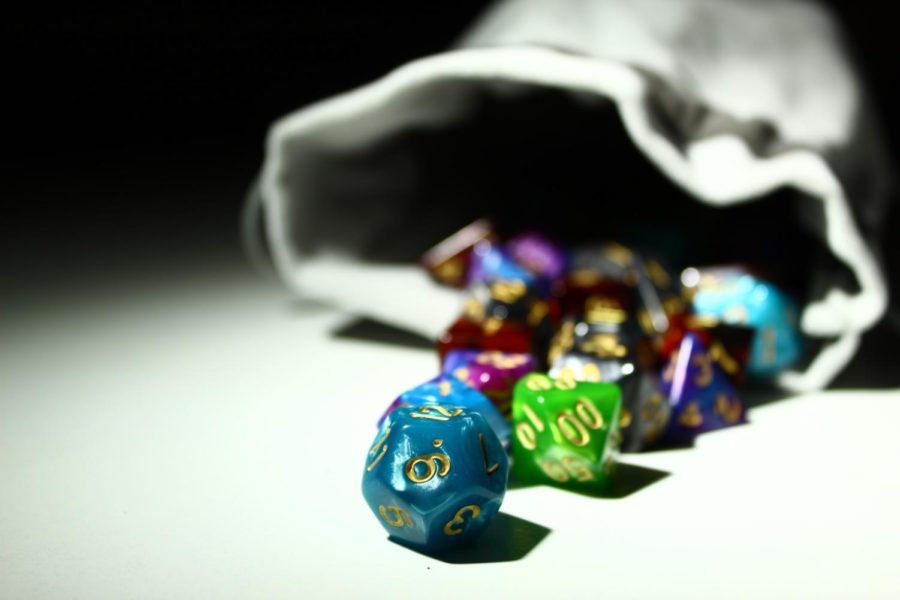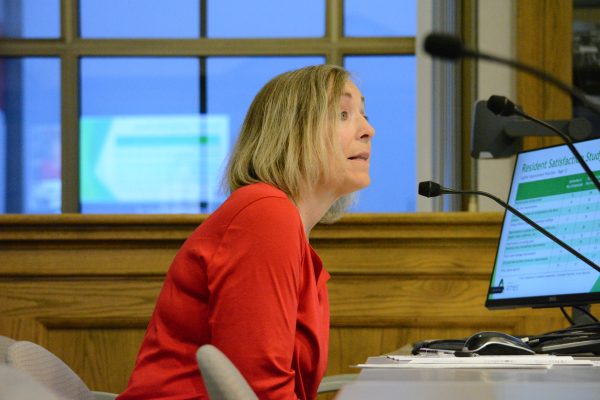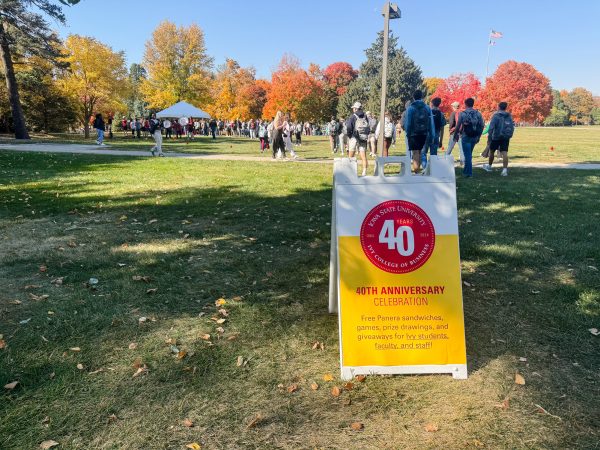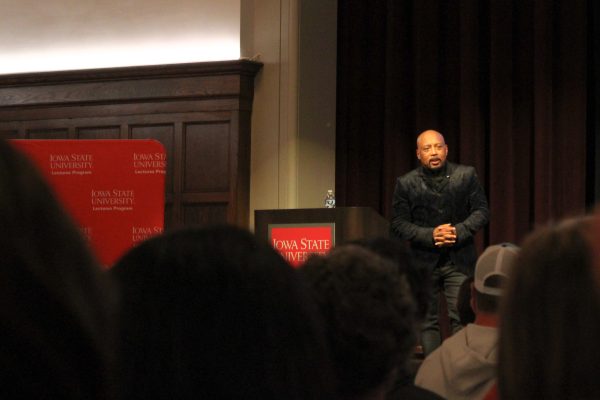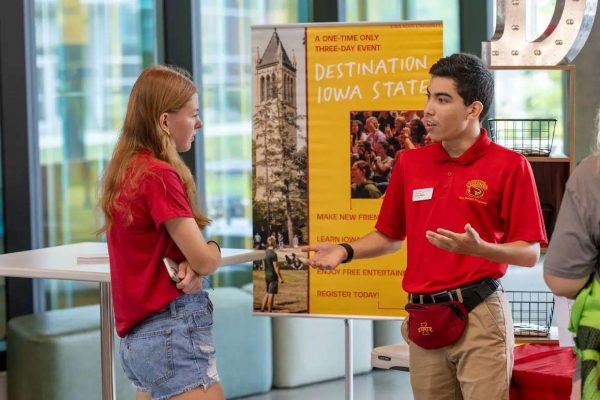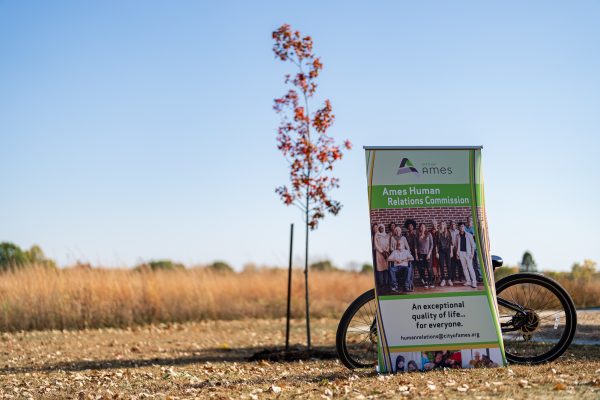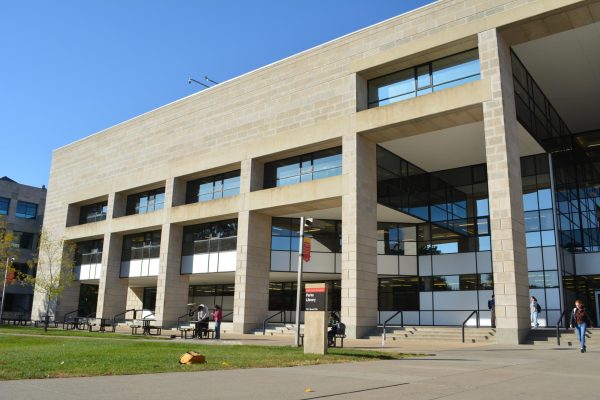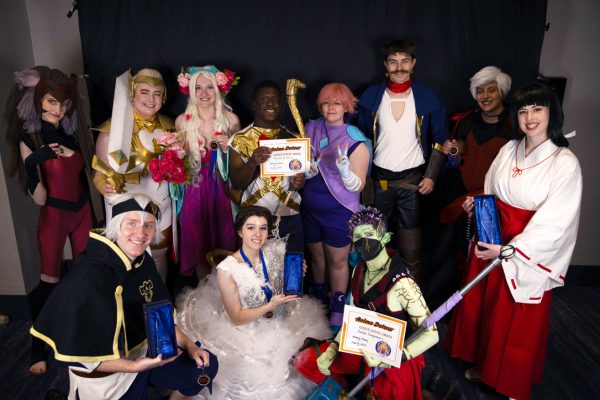The Goblins of Carver Hall
Iowa State University is home to more than 900 clubs and organizations. Some support political activism, some focus on strengthening students’ skills and preparing them for a career and some just simply enjoy playing board games.
The Guild of Board Gamers and Roleplayers is a “club dedicated to all forms of fantasy roleplaying, historical miniature battles, collectible miniature battles and board games,” according to the student organization’s website. The Guild “promotes good fellowship and competition in a friendly, fun and non-alcoholic environment.”
Reserving more than 40 hours of space each month, the club remains one of the most active organizations on campus.
“We definitely get stereotyped as the nerds,” said Juana Jones, a junior studying industrial technology and the club’s vice president. “We always joke around that we’re just a bunch of guys that moved out of the basement because that’s where our meeting place used to be.”
The group has thus deemed themselves the “basement goblins,” as a joke that has caught on around the club.
In addition to board games, the club participates in activities such as card games and computer games. It provides a laid-back environment for students to meet new people, compete in competitive matches and introduce others to their own personal favorites.
“We really just hang out and play board games,” Jones said.
The club, which averages around 20 members, meets twice a week in Carver Hall for gaming sessions that typically last four hours or more. Some of their matches last late into the night before a winner is declared.
Each member typically brings one of their favorite games to share before students choose a group and begin playing.
“Sometimes there’s so many games, it’s really hard to pick,” Jones said.
The matches sometimes get intense, but the club’s main focus is not competition and keeping score. The Guild serves as a place for students to socialize and share their love of games.
Attendance at weekly meetings is not required, and the club operates on a “come when you can, stay for however long you want” basis.
“After a big test it’s a great stress reliever to blow off some steam,” Jones said.
Jones joined the Guild during the COVID-19 pandemic as a way to get out and meet new people. He previously been involved with other clubs on campus, such as Engineers Without Borders and the Industrial Tech Club, but believes the Guild is set apart by its focus on making friendships and having fun.
Robert Bengel, a senior studying materials engineering and the club president, also joined as a way to meet new people. When Bengel moved to Iowa, he did not know any other students.
“My first year was really intimidating until people ushered me in and made me feel like part of the group,” Bengel said.
Diversity and inclusion are two major themes of the Guild. There is no required skill level or knowledge to join.
“I promise any of us will be more than willing to show you how to play something,” Jones said.
Jacob Nedder, a senior studying cyber security engineering and treasurer of the Guild has enjoyed the social aspect and met several new friends throughout his two years of membership.
“All sorts of people attend the Guild meetings,” Nedder said. “The only common thread is a love of board games.”
The Guild of Board Gamers and Roleplayers also welcomes alumni who have since graduated to come back and join in on the fun.
There are no required fees or costs for the club, but members have the option to pay a $1 due to obtain a vote in club elections and the right to run for office positions.
The Guild has seen an uptick in attendance in recent meetings and is continuing to build and expand its organization. President Bengel and the rest of the officers hope to reintroduce some of the club events and activities that have been put on halt since the pandemic.
These events include things like board game lock-ins and Dungeons & Dragons marathons. Approaching its 50th anniversary, the Guild continues to welcome new members at each meeting and will continue to do so all year long.
The doors remain open at club meetings in Carver Hall from 6 to 10 p.m. Mondays and noon to 4 p.m. Saturdays.
Your donation will support the student journalists of the Iowa State Daily. Your contribution will allow us to purchase equipment, send our student journalists to conferences and off-set their cost of living so they can continue to do best-in-the-nation work at the Iowa State Daily.


